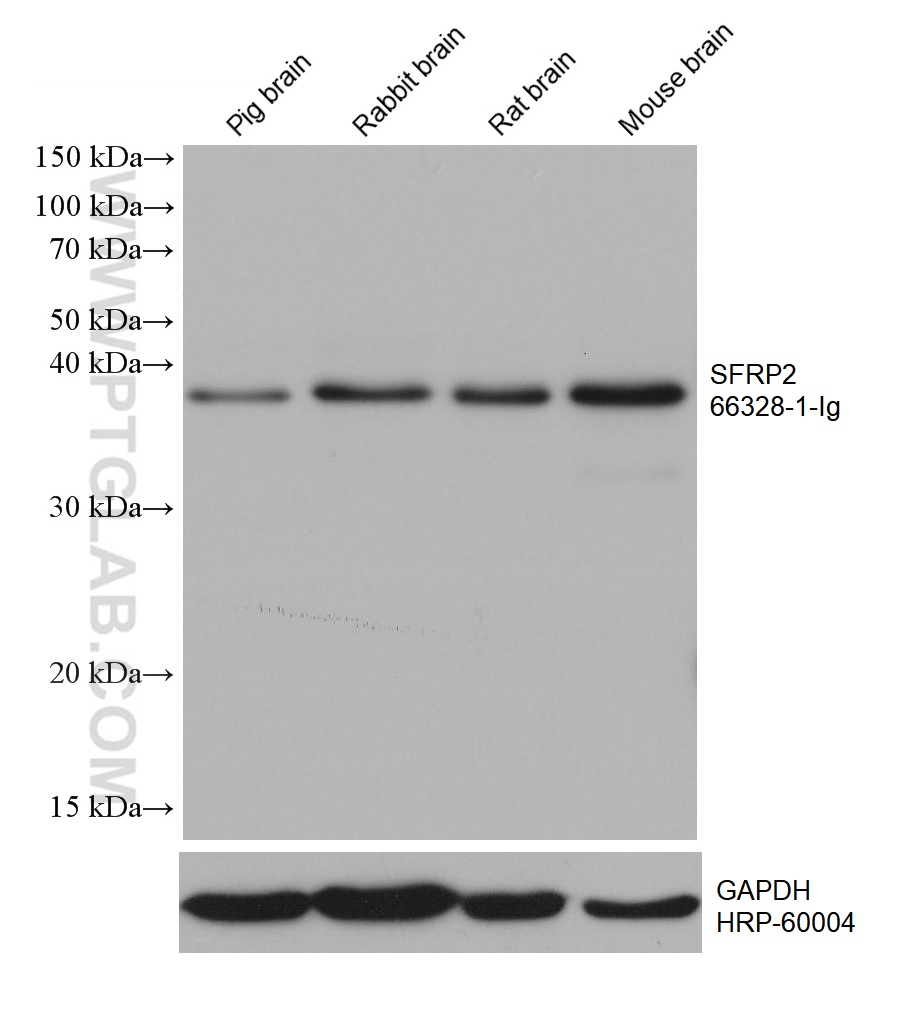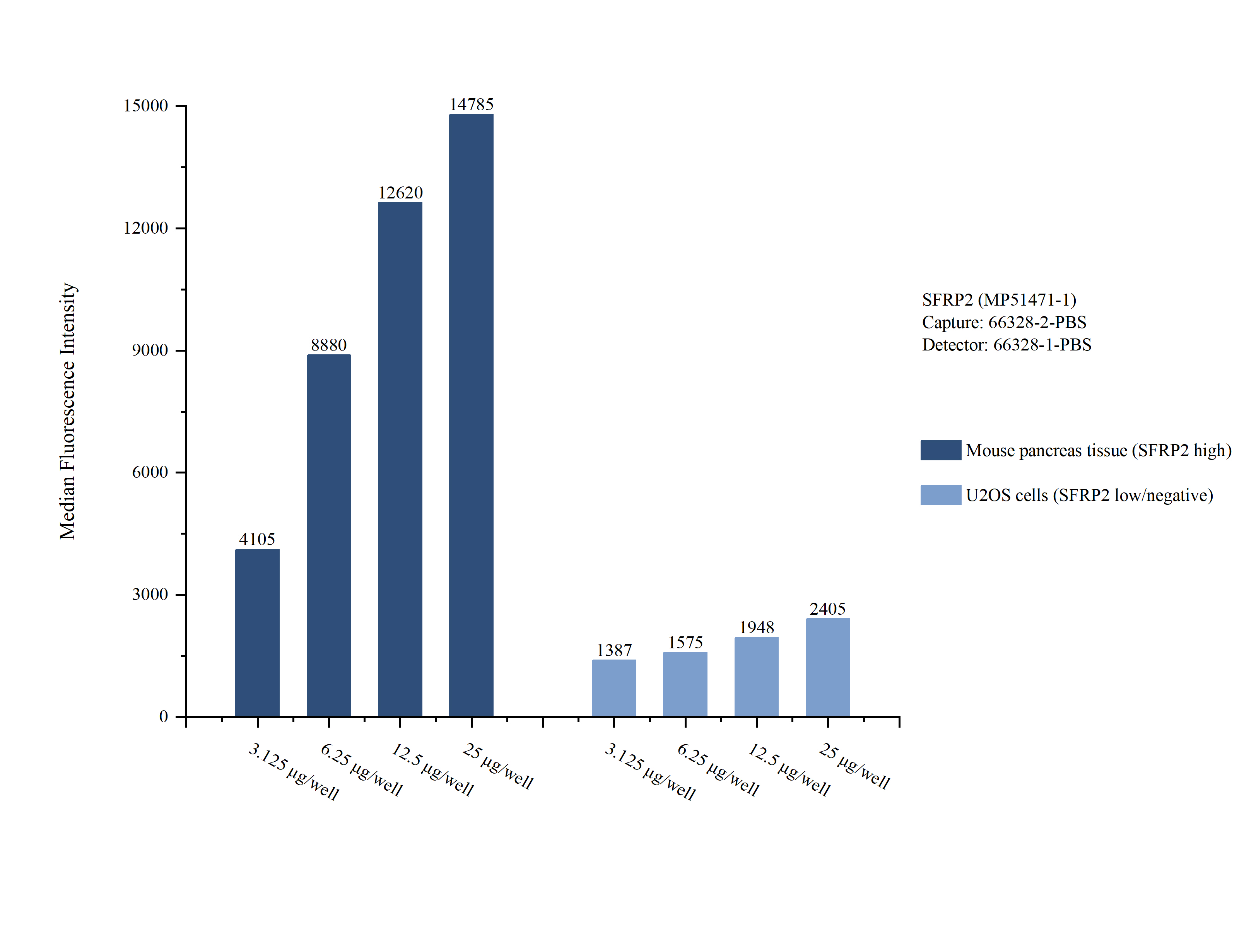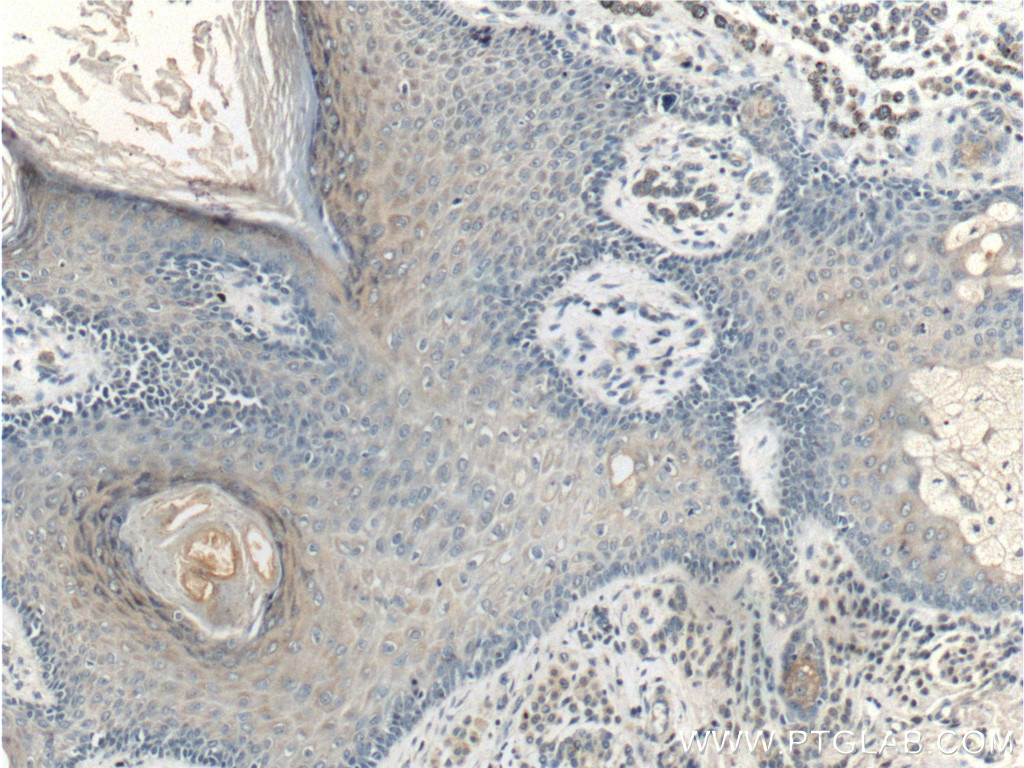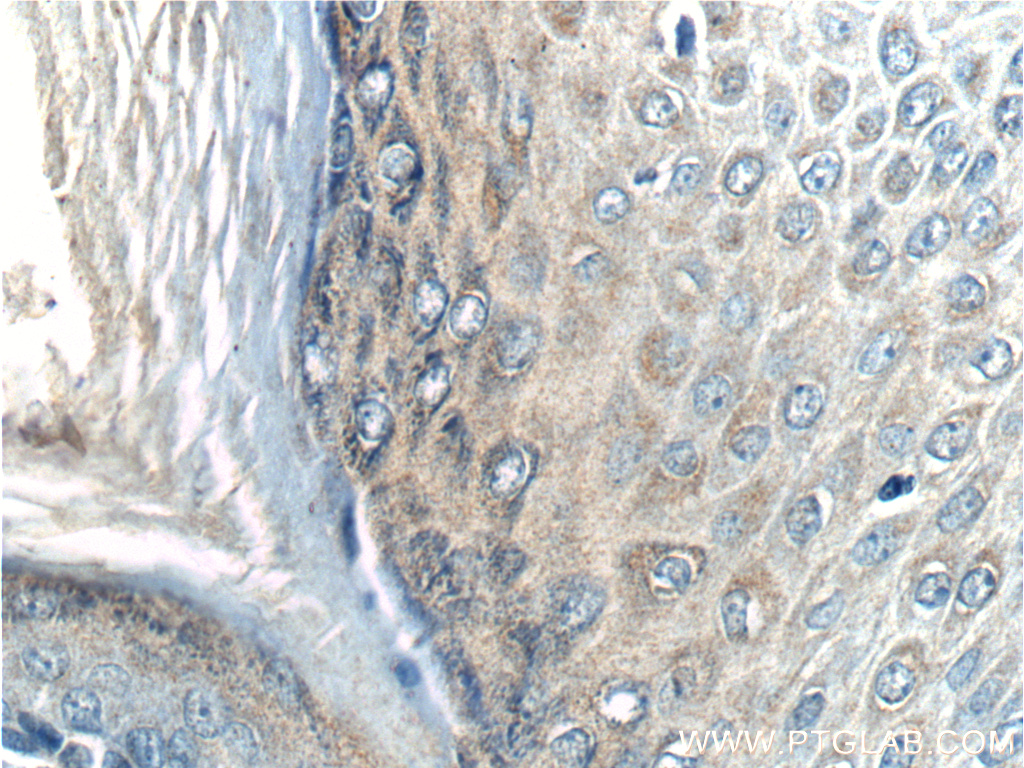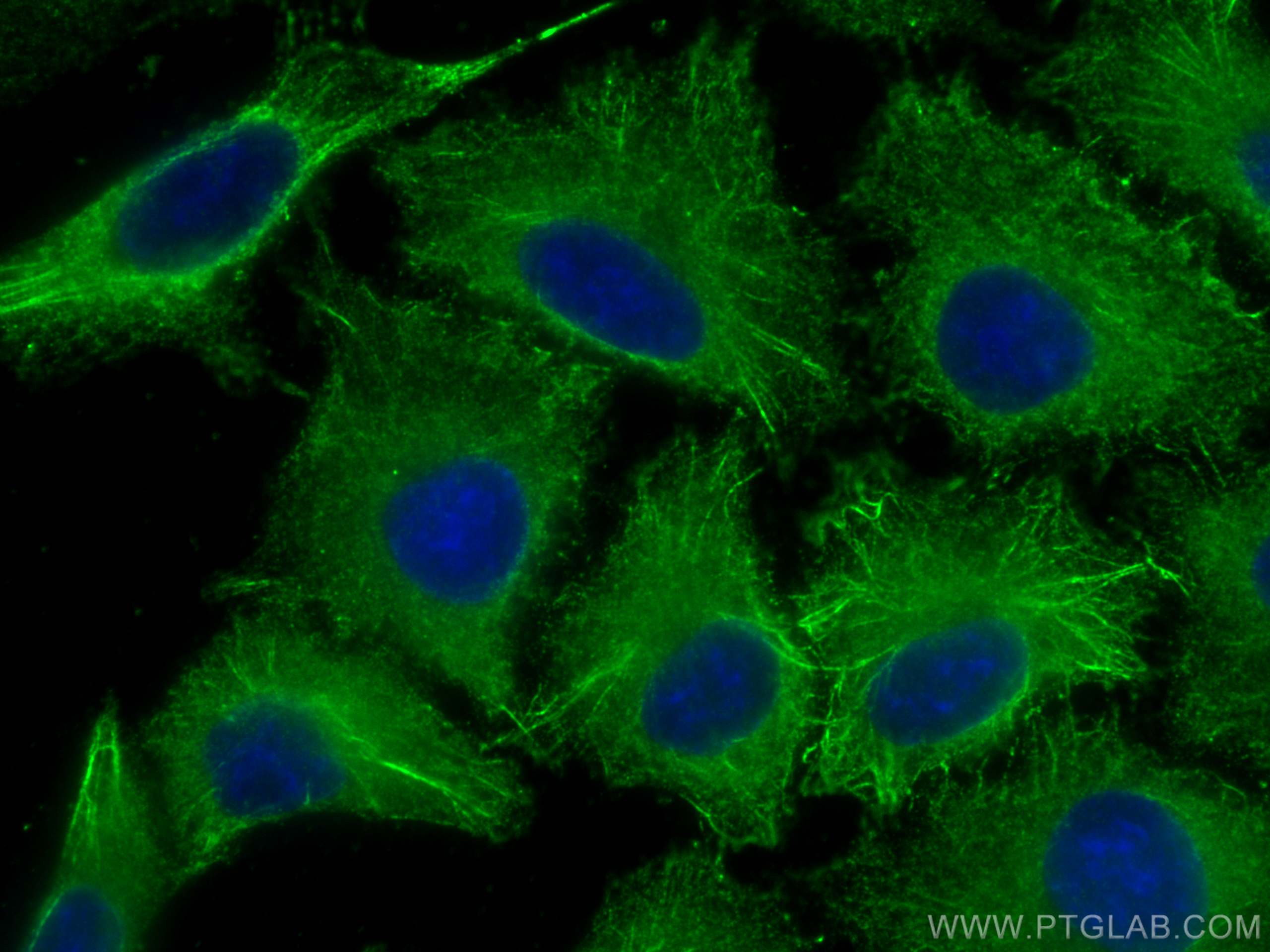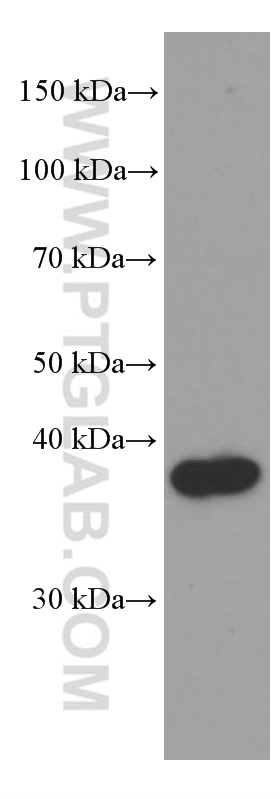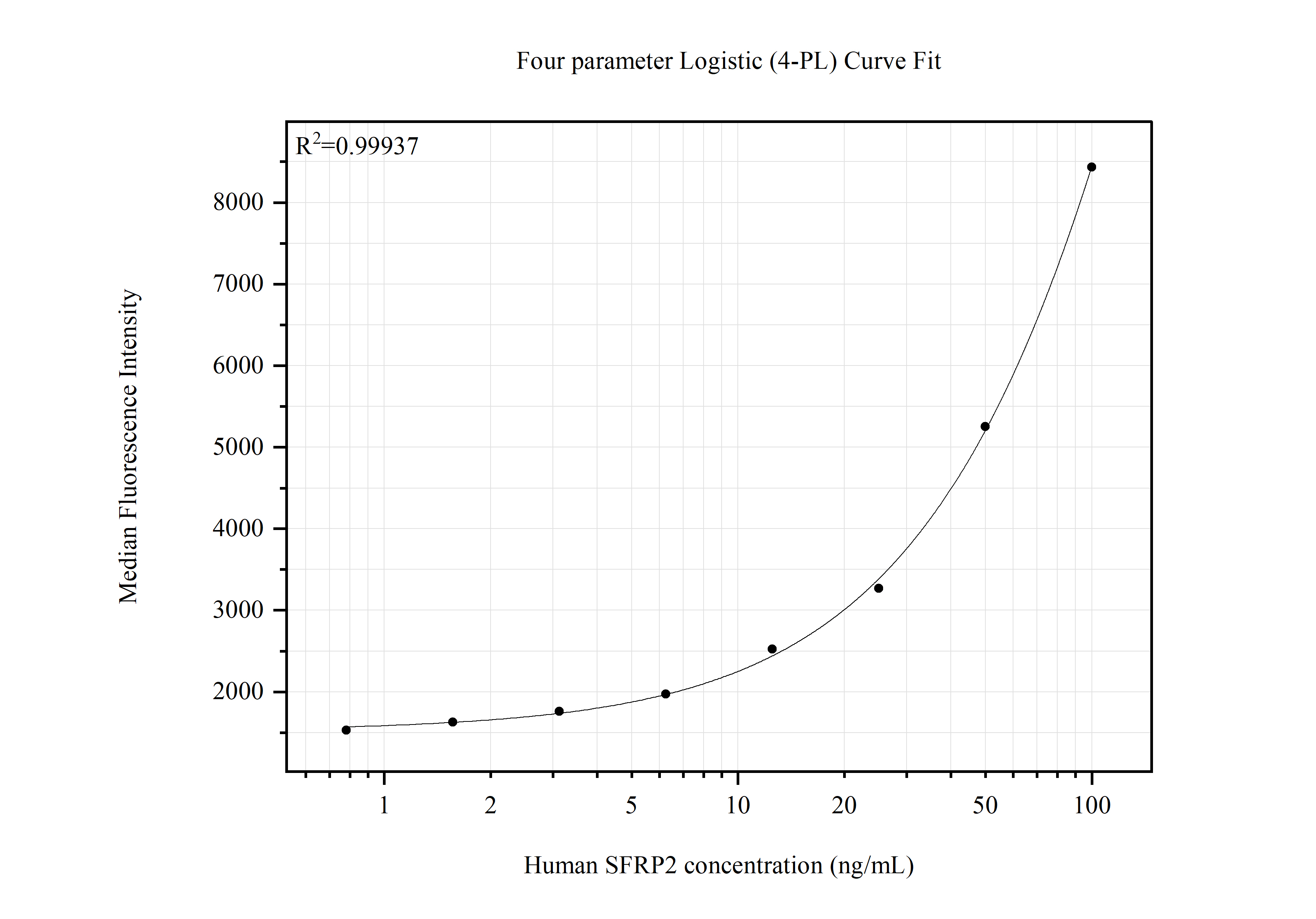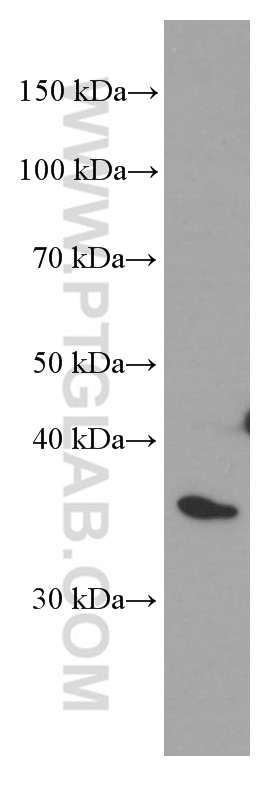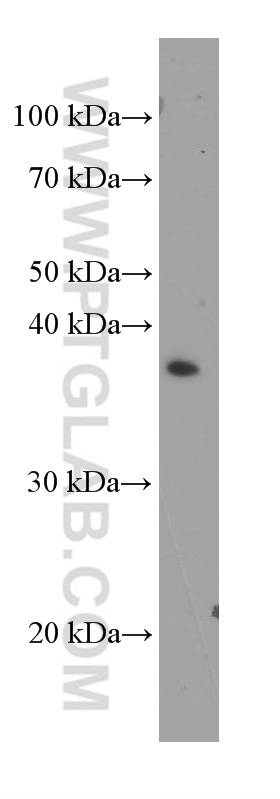验证数据展示
产品信息
66328-1-PBS targets SFRP2 as part of a matched antibody pair:
MP51471-1: 66328-2-PBS capture and 66328-1-PBS detection (validated in Cytometric bead array)
Unconjugated mouse monoclonal antibody pair in PBS only (BSA and azide free) storage buffer at a concentration of 1 mg/mL, ready for conjugation.
This conjugation ready format makes antibodies ideal for use in many applications including: ELISAs, multiplex assays requiring matched pairs, mass cytometry, and multiplex imaging applications.Antibody use should be optimized by the end user for each application and assay.
| 经测试应用 | WB, IHC, IF/ICC, Cytometric bead array, Indirect ELISA Application Description |
| 经测试反应性 | human, mouse, rat, pig, rabbit |
| 免疫原 |
CatNo: Ag18840 Product name: Recombinant human SFRP2 protein Source: e coli.-derived, PET28a Tag: 6*His Domain: 1-295 aa of BC008666 Sequence: MLQGPGSLLLLFLASHCCLGSARGLFLFGQPDFSYKRSNCKPIPVNLQLCHGIEYQNMRLPNLLGHETMKEVLEQAGAWIPLVMKQCHPDTKKFLCSLFAPVCLDDLDETIQPCHSLCVQVKDRCAPVMSAFGFPWPDMLECDRFPQDNDLCIPLASSDHLLPATEEAPKVCEACKNKNDDDNDIMETLCKNDFALKIKVKEITYINRDTKIILETKSKTIYKLNGVSERDLKKSVLWLKDSLQCTCEEMNDINAPYLVMGQKQGGELVITSVKRWQKGQREFKRISRSIRKLQC 种属同源性预测 |
| 宿主/亚型 | Mouse / IgG1 |
| 抗体类别 | Monoclonal |
| 产品类型 | Antibody |
| 全称 | secreted frizzled-related protein 2 |
| 别名 | 1F3A1, FKSG12, SARP1, SDF-5, Secreted apoptosis-related protein 1 |
| 计算分子量 | 295 aa, 34 kDa |
| 观测分子量 | 38 kDa |
| GenBank蛋白编号 | BC008666 |
| 基因名称 | SFRP2 |
| Gene ID (NCBI) | 6423 |
| RRID | AB_2881709 |
| 偶联类型 | Unconjugated |
| 形式 | Liquid |
| 纯化方式 | Protein A purification |
| UNIPROT ID | Q96HF1 |
| 储存缓冲液 | PBS only, pH 7.3. |
| 储存条件 | Store at -80°C. The product is shipped with ice packs. Upon receipt, store it immediately at -80°C |
背景介绍
Secreted frizzled-related protein 2 (Sfrp2) is a secreted glycoprotein molecule containing an N terminal cysteine-rich domain, which is typically 30-50% identical to the putative Wnt-binding site of the frizzled receptor, and a C terminal heparin-binding domain with weak homology to netrins. It has been implicated in diverse cellular processes, including embryogenesis, regulation of cell apoptosis, and cell differentiation. Methylation of this gene is a potential marker for the presence of colorectal cancer.

